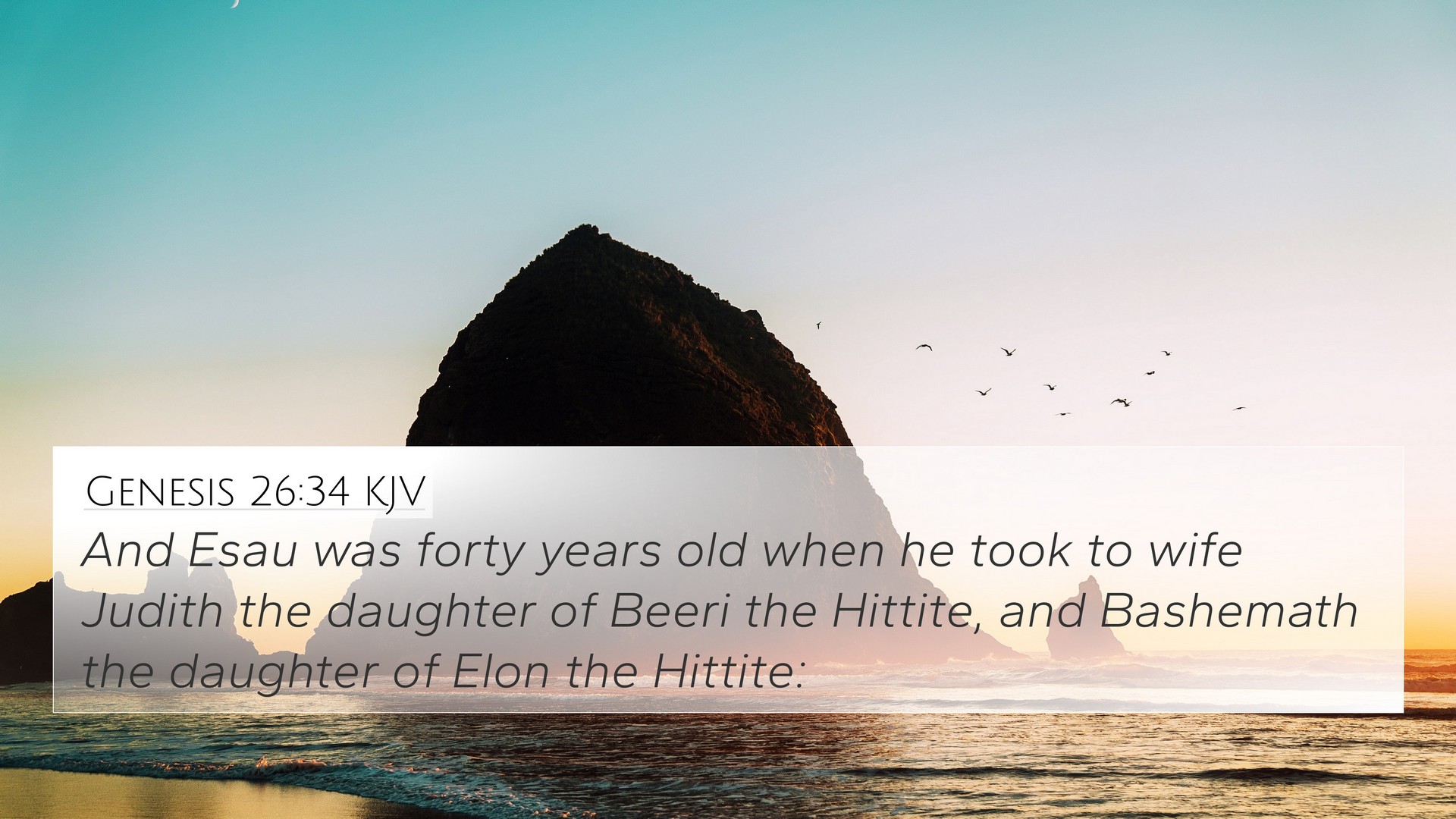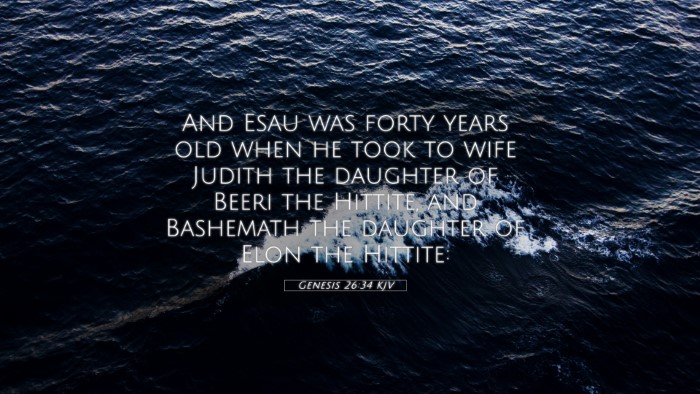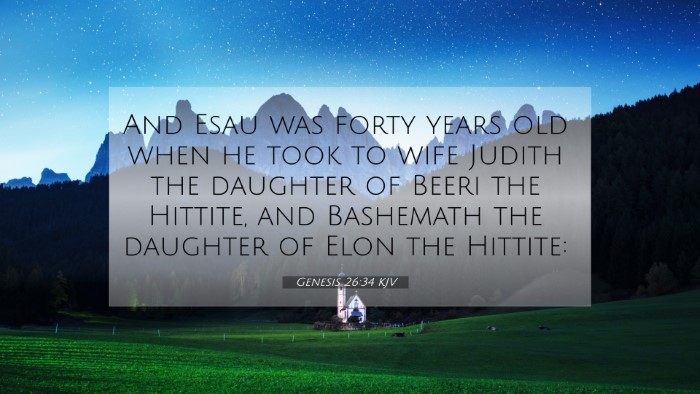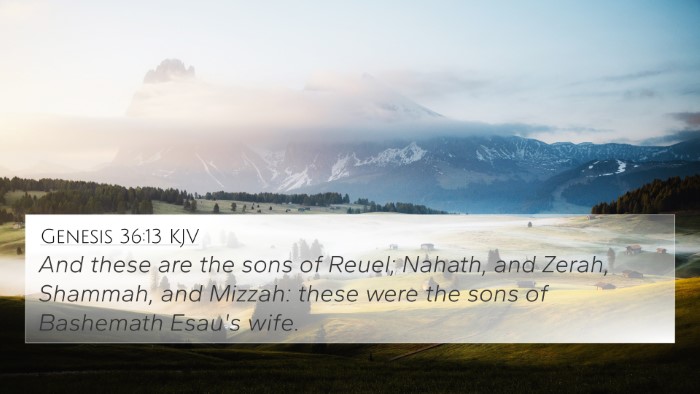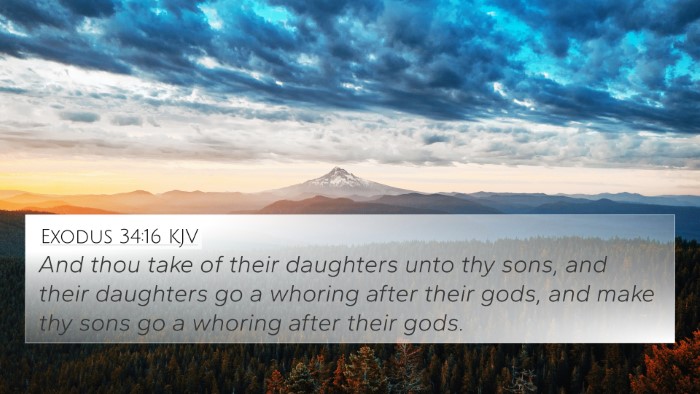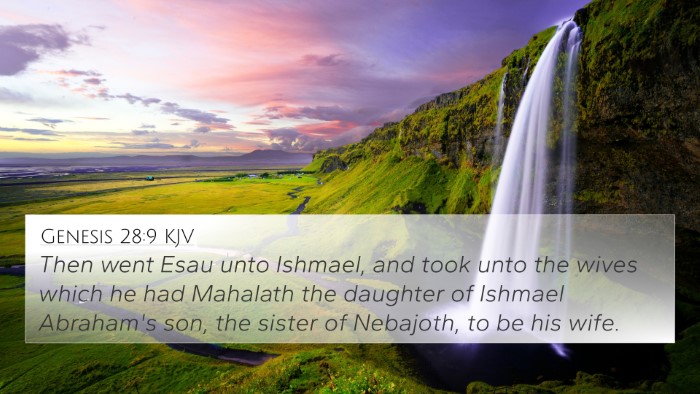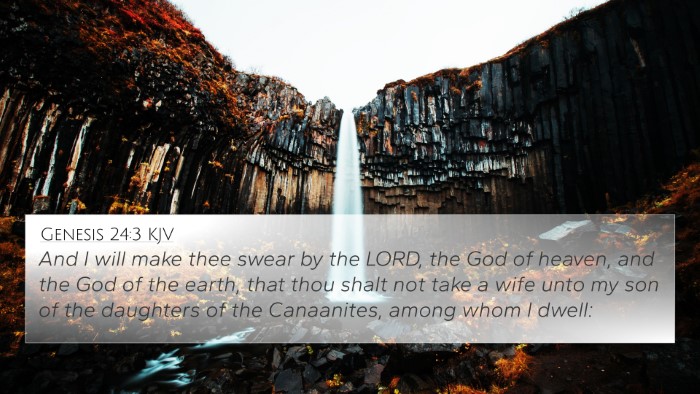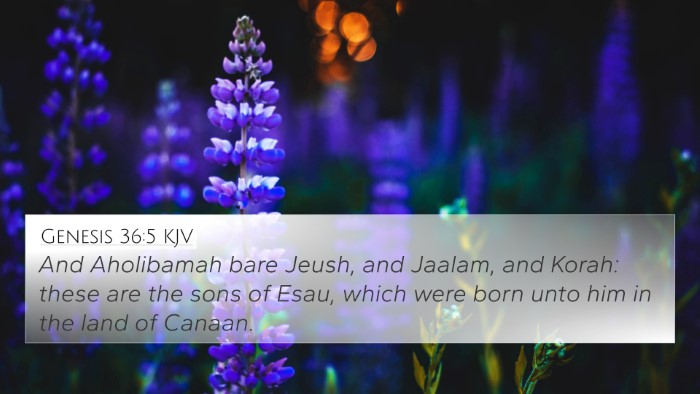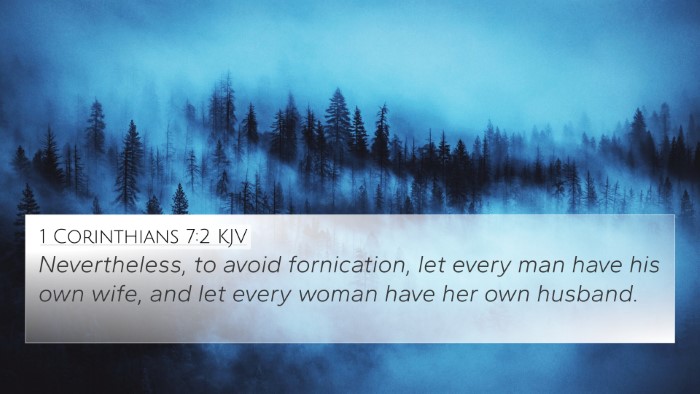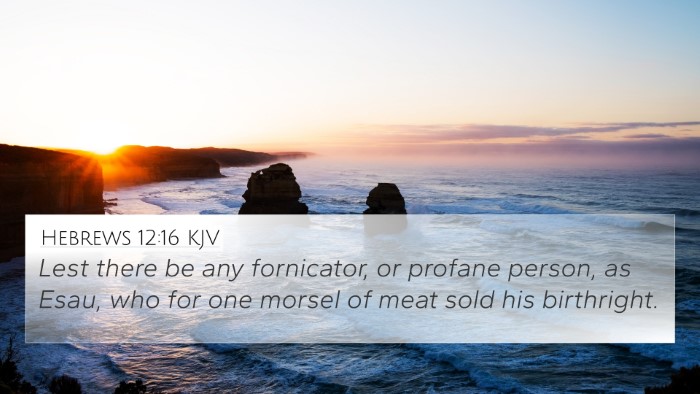Understanding Genesis 26:34
Genesis 26:34 states, "And when Esau was forty years old, he took to wife Judith the daughter of Beeri the Hittite, and Bashemath the daughter of Elon the Hittite." This verse reveals significant details about Esau's marital choices, highlighting themes of cultural integration and familial conflict.
Meaning and Insights
The selection of wives by Esau is laden with implications. According to Matthew Henry, Esau's choice of Hittite women represents a departure from the covenant line, demonstrating disobedience to the cultural and spiritual standards set by his forefather, Abraham. This act signifies his disregard for the divine lineage which was crucial in the Abrahamic covenant.
Albert Barnes further discusses this, indicating that Esau's marriages to Judith and Bashemath show a desire for worldly associations rather than seeking a righteous companionship in line with God’s will. In doing so, Esau placed physical desires above spiritual allegiance, which has lasting consequences in the narrative of Genesis.
Similarly, Adam Clarke notes that the mention of Esau's age—forty—highlights a time of maturity and decision-making. This suggests that Esau's choices were not made in ignorance but rather reflect a conscious rejection of his family's values.
Thematic Connections
The verse serves as a critical point for understanding the themes of familial discord and the importance of divine guidelines in personal choices. Esau's disregard for the covenantal family dynamic leads to a fracturing of family ties, especially in juxtaposition with Jacob's later representation of faithfulness to God's call.
Cross-References for Genesis 26:34
- Genesis 24:3 - Abraham's instructions about marrying within the family.
- Genesis 27:46 - Rebekah's displeasure with Esau's wives.
- Exodus 34:16 - Warnings against intermarriage with other nations.
- Deuteronomy 7:3-4 - God's command to avoid foreign wives to prevent turning away from Him.
- 1 Corinthians 15:33 - The influence of bad company on character.
- Hebrews 12:16-17 - A reference to Esau's unholy choices and their consequences.
- Malachi 1:2-3 - God's statement about His love for Jacob and His hatred for Esau, rooted in their choices.
Comparative Bible Analysis
Understanding Genesis 26:34 in relation to other Scriptures allows for a deeper exploration of the consequences of choices made outside of God’s command. Through cross-referencing, one can analyze how Esau's story correlates with the lives of other biblical figures, such as Solomon, whose multiple foreign marriages led to a turn away from faith.
By linking Bible scriptures, we see the continuous theme of God desiring His people to remain pure and engaged with those who share their faith, ultimately leading to a faithful legacy, as seen in the line of Jacob despite his own failings.
Tools for Bible Cross-Referencing
For those looking to explore the intricate connections within the Bible, utilizing a Bible concordance or a cross-reference Bible study guide can be invaluable. Such tools will aid in identifying thematic Bible verse connections across both the Old and New Testaments.
Conclusion
Genesis 26:34 is not merely a historical account but carries profound theological implications. Esau’s choice invites readers to evaluate the weight of personal decisions against the backdrop of biblical principles. In a broader context, the narrative encourages reflection on the importance of aligning one's life choices with divine purposes and the dangers of straying from God’s intended path.
